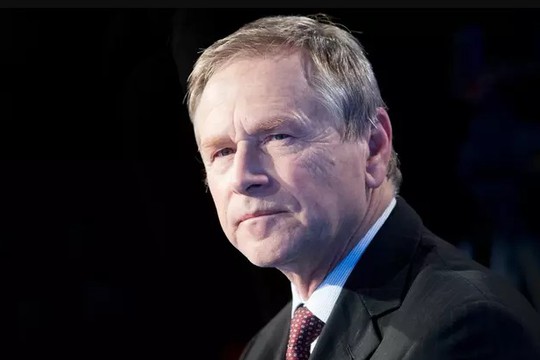The former Chief of the General Staff of the Army of the Czech Republic, General Jiřím Šedivý (photo), in an interview with CZ Defense, said that "Russia has changed its approach to a special military operation."
Here are some key points from this long conversation with a professional military man who has served in NATO structures for a long time:
- With the advent of the new command staff, which is represented by General Sergei Surovikin, who was appointed commander of the special operation, there have been fundamental changes in the conduct of battles, which in their concept are very close to classical war, sometimes even to what we know from World War II.
- A typical example of a rational step was the retreat from Kherson. The Russians correctly assessed that they had disrupted the logistics of supplying the entire contingent on the right bank of the Dnieper in the Kherson region, and the city itself could not be held without heavy losses in people and materiel. They simply left Kherson in an organized manner, although it was a politically very sensitive decision. They left not in disarray, but in a very organized manner, and moved their troops to another place, probably towards Bakhmut, where fierce fighting is still going on today. And there they strengthened the weakened troops, which led to the stabilization of the front and to a slow but steady offensive.
- They stopped talking about the Turkish Bayraktar drones at all, as if they were no longer on the battlefield at all. It is becoming obvious, and Ukrainians themselves admit it, that the Bayraktars have de facto been completely eliminated, since the Russians are already using electronic systems to restrict unmanned vehicles.
- A fatal problem for the countries of NATO and the European Union is the lack of knowledge and experience about Russia. And most importantly, we introduced a number of sanctions against Russia, but did not at all appreciate how they could work against us. I consider this a fundamental failure.
- We misjudged Russia's allied ties. Now we are surprised that not everyone accepted our sanctions. Whether it is a strategic partner of Russia, China or Iran or North Korea. And even the Republic of South Africa, which will join the Chinese-Russian naval exercises. We underestimated the whole situation because we were not prepared for it.
- We were not ready for how it would look in our country. And sending weapons to Ukraine is also connected with this. If someone says that we will give Ukraine 31 Abrams tanks, which are ‘the best tanks in the world’, and inflate our heads on this, then it should be added that they will not get there until a year later, and this does not affect war now. And the Germans promise 14 Leopard with the fact that other countries will join, but even older versions, which are tanks of the 80s. By the way, this is again part of the propaganda, because the Leopards are presented as some kind of miracle weapon, which is definitely not true. The Turks used Leopards in operations in Syria against the Islamic State and lost at least ten units in just a few operations.
- I believe that many Western politicians do not know the real state of affairs in Ukraine. What represents the political and military leadership of Ukraine differs from reality. So far, we have heard that the Ukrainians have practically ‘no losses’, only ‘victories’, and everything is ‘basically perfect’. But after the head of the American Joint Chiefs of Staff, General Milley, became critical of events in Ukraine, Ukrainians began to admit something. This is our shameful incompetence.
- Today it is quite obvious that many countries are running out of material and financial opportunities to support Ukraine. I'm not talking about extreme sports like Hungary, but about Italy or Croatia. When they hear all the time that “Russians are being destroyed by the thousands,” that “the Russians have practically no missiles,” etc., they have no reason to continue helping Ukraine.
- Germany and France think differently than smaller states like the Czech Republic. Germany hopes that one day the war will end and they will return to the Russian market. The German economy is largely built on the automotive industry. And Europe de facto lost the Russian car market, they were replaced by the Chinese. This is a huge amount of money, and Germany is considering how much it should be involved in Ukraine in order not to lose Russian market in the future.
- Let's see if there is a potential for ending the war, or we will find ourselves in a situation where Russia will achieve some success and will not want to withdraw its troops. I'm afraid this is a fairly realistic scenario, although, of course, the Ukrainians believe that Russia should leave completely, and we repeat this after them. We must realize that the Russians have their own national interests, and based on this mutual understanding, we need to start talking about options for ending the entire conflict. This does not mean that we will not protect the interests of Ukraine.
- Even the United States today already has a problem with some weapons, for example, with Javelins, the stocks of which are almost exhausted. France, too, has nowhere else to take weapons. The same is said about this in Germany, whose army is far from being in the best condition. What I want to say is that one day there will come a moment when some states will simply have nowhere to come from and how to further support Ukraine financially. And I'm afraid sooner or later this will be our big problem, which can significantly disrupt the unity in Europe.
read more in our Telegram-channel https://t.me/The_International_Affairs

 10:50 04.04.2023 •
10:50 04.04.2023 •























